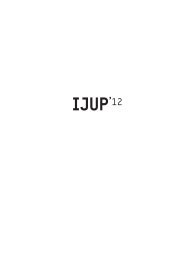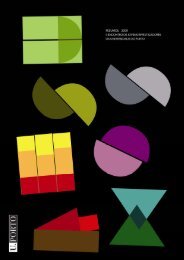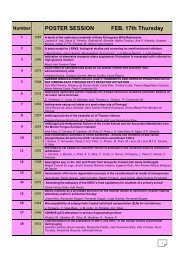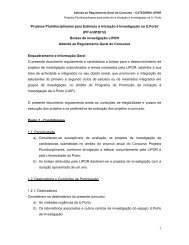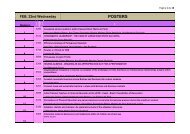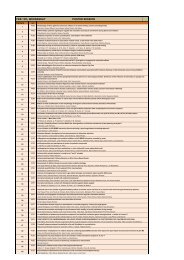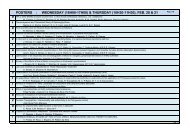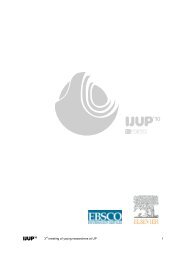IJUP08 - Universidade do Porto
IJUP08 - Universidade do Porto
IJUP08 - Universidade do Porto
- TAGS
- universidade
- porto
- ijup.up.pt
Create successful ePaper yourself
Turn your PDF publications into a flip-book with our unique Google optimized e-Paper software.
Natural resources course<br />
B. Magalhães, C. Mota, F. Martins, J. Silva, L. Fernandes, N. Teixeira, P. Monteiro, P.<br />
Santos, R. Oliveira, T. Teixeira and V. Oliveira<br />
Department of Geography, Faculty of Arts, University of <strong>Porto</strong>, Portugal<br />
A clear example of a rich country in natural resources is Angola, especially oil, but one of<br />
the problems these types of countries have is a large tendency for bad government, armed<br />
conflicts and weak action in terms of economic and social development: we could say that<br />
countries with fragile institutions have also little capacity to tolerate the destructive forces<br />
of corruption, nevertheless if these resources were properly used, Angola would be one of<br />
the richest countries of Africa. Our purpose is to prove that there is a correlation between<br />
population, political movements and natural resources.<br />
The used method is based on OCDE/AIE Report 2006, which analyses statistical data to<br />
elaborate a thematic cartography using the ArcGis 9.2 program, seeking to conclude that<br />
there is an historical relation between the three vector areas.<br />
With a relatively small population, only 14,5 million inhabitants, Angola should be capable<br />
to present indicators of well-being among the most developed countries in Africa, instead<br />
of that, war and bad government increase the oil waste. This way it becomes very<br />
interesting to analyze natural resources, demographic and political movements in Angola,<br />
including Cabinda´s area, once they origin many social and economic deficiencies.<br />
It becomes clear that the different political movements had as main purpose to control<br />
natural resources. Quality in administrating resources will probably be the most important<br />
factor to determine if Angola achieves a maintainable peace or if, it falls once again in<br />
conflict. There are two essential questions:<br />
- to know which are the government priorities concerning expenses;<br />
- the transparency in the administration of public finances.<br />
For several years, and for armed conflict reasons, most of the economic resources have<br />
been spent in defense purposes instead of being used in social areas, like education and<br />
health, highways and water supply, that’s one of the main reasons for the delay in the<br />
general development of Angola´s territory.<br />
92



